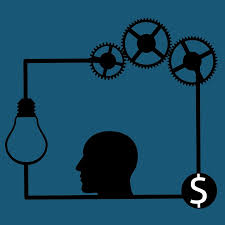 Energy Efficient Appliances, …. what’s the real deal?
Energy Efficient Appliances, …. what’s the real deal?
With the apparent never ending increase in the cost of electricity, energy efficient appliances are becoming more and more attractive when the time to purchase a new appliance raises its ugly head.
Of course there’s an overwhelming variety on the market and the greater the claim to energy efficiency the greater the increase in purchase price.
For those who consider it advantageous to start with the end in mind, the long-term advantage of spending more money initially needs to be reconciled. If you are in the habit of just buying the cheapest junk you can get away with, then eventually you will end up with a house full of the cheapest junk you could get away with.
Generally speaking that’s possibly not the best practice for a plethora of reasons. When considering a major purchase, that is, buying an appliance to serve the family, such as a refrigerator or television set, having something that suits your needs, or better still, exceeds your expectations, reinforces the old adage that, ” quality is remembered long after price is forgotten”. And seriously, who wants to be fridge shopping every Tuesday when a better built machine will last longer.
The second law of thermodynamics, that is, the law of entropy is alive and well on planet Earth. It doesn’t matter how good a fridge you buy, eventually it will end up going to heaven, or if your fridge has been bad; that other place.
The #1 best way to reduce your electricity bill by around 10% regardless of whether
you rent or own and you can start implementing it tonight. The power companies
won’t tell you this one >>COMPLIMENTARY VIDEO >>>
What I wanted to talk about specifically here was, the initial cost outlay, plus the cost of operating the machine over the period of the life of the appliance.
If we assumed that all devices lasted exactly the same time and used exactly the same amount of electricity to do exactly the same job over the same period of time, then it really wouldn’t matter what we bought.
But not all electrical appliances are equal in build quality or efficiency. Fortunately for shoppers, there are basically two important pieces of information that need to be considered when making such a purchase.
They are, the cost of the unit and the star rating denoting it’s energy efficiency. If you are happy to have the cheapest fridge you can source, then obviously anything will do, however if you are in this for the long haul then you need to consider the cost are both purchasing and operating the appliance.
For comparison sake, if a $500 refrigerator generally lasts say 2 years, but the same sized $1000 refrigerator generally lasts for five years, then the more expensive refrigerator works out to be more efficient in the long run for longevity. Generally speaking, the more expensive appliances are not only built better but are more energy efficient as well.
So what do you do? If you purchase a washing machine that costs three times as much but is only slightly more energy efficient it would need to last for a very long time for it to pay for itself. My mother still has the first fridge that she bought in 1960. It has had the seals replaced at least a few times in its life and has outlasted who knows how many other white shiny new ones that have graced her kitchen.
It was retired many, many years ago and now lives downstairs under the house in a cool environment and continues to be used because it continues to keep working. Even though the fridge had probably paid for itself in 1973, it’s still on the payroll however it’s energy efficiency is not as good as a new release Hisense
Black Steel 453L Bottom Mount Refrigerator. If the fridge was seriously needed, it would be more economical to replace it with a newer more energy efficient model because the amount of energy that the fridge uses every day, even in its cool environment, is not an economical practice.
In real terms over the years, the cost of electrical appliances has been steadily reducing because of labour costs on imported equipment and the economies of scale. If the price of electricity continues to increase, the running costs of any electrical appliance become more of an issue.
I doubt that there would be many refrigerators with the life expectancy of my mother’s old fridge but back in the late 1950 and early 60s, that purchase would have represented many months of income. The economic conditions of the world has changed significantly since then. The best long-term outlook now is to buy the best quality fridge, with the highest energy efficient rating for the best price you can negotiate.
When your old fridge is not performing as well as it did when it was new, it is more than likely using significantly more electricity to do the same job. With the increasing cost of electricity, replacing electrical appliances more frequently now is making more of an economic sense.
John Lynn
Suburban Off Grid Living

